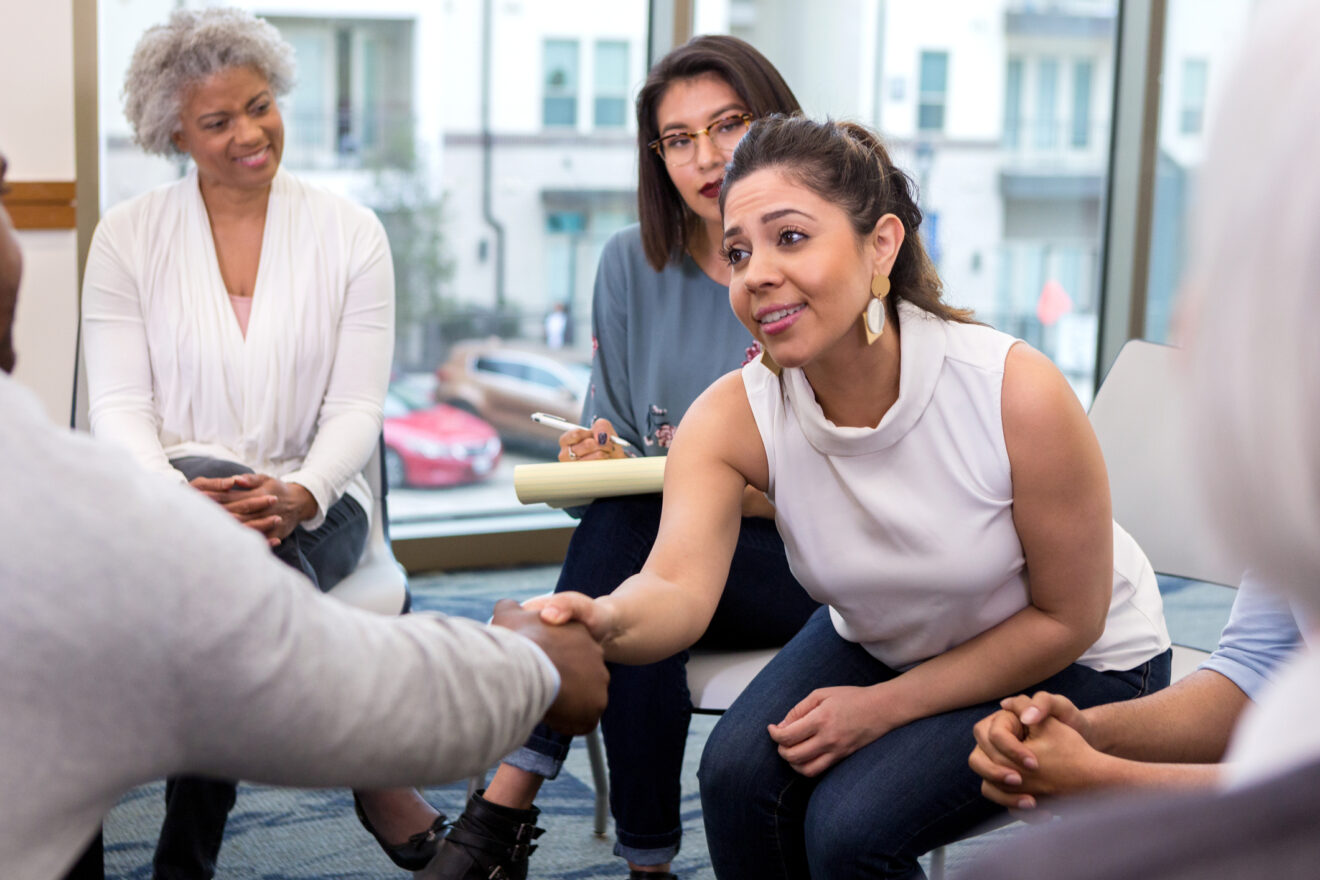The 2020 census documented that Latinos are the hardest working, most diverse, entrepreneurial and youngest people in the US. By sheer numbers alone, Latinos will shape the 21st century. They’re already making strides from the bottom to top of the corporate ladder, necessitating a better understanding by non-Latinos of the cultural hallmarks. Latinos’ leadership is inclusive, intergenerational and people centered. Latinos offer practices for all leaders that can help build an inclusive future and bring us home to our founding values.

Numero uno: Embody a WE orientation
Latinos come from a We or a people-centered culture that promotes group welfare, cooperation and interdependence. Latinos learn to contribute to their families and community at an early age. Values such as reciprocity, sharing the work that needs to be done and generosity make them natural collaborators. This is encapsulated in the revered Latino saying mi casa es su casa.
As a We or collective culture, people and community are emphasized more than material wealth or individual achievement. Honorable Anna Escobedo-Cabral, the former US treasurer, has seen this tendency with Latino leaders, and says, “Our ultimate motivation is a concern for the people we serve.” Leadership, therefore, is defined as contributing to the group welfare.
By working for group success before personal gain or credit, showing respect for everyone regardless of position and working side-by-side with people, leaders grow commitment and trust, which results in exponential results. The We orientation upholds American values of the common good, equality and respect for the individual.
Numero dos: Embrace the bienvenido spirit
The “bienvenido spirit” means to receive or accept with pleasure, to approve, appreciate or even embrace. Bienvenido (welcome) is central to Latino hospitality, generosity and receptivity to differences.
Inclusiveness is rooted in Latino ancestry and DNA — we are inherently diverse. A recent study by the Pew Research Center found that 25% identify as indigenous; 34% as mixed race; 24% Afro-Latino; and 42% claim European ancestry. From a historical context, Latinos are a fusion people — originally a mix of the Spanish and Indigenous people of this hemisphere, but today many Latinos have mixed antecedents from other countries. For instance, my father was born in Nicaragua but is of French ancestry.
Furthermore, Latinos are a culture not a race — and are united through language, a common history, spiritual tradition and mutual values. Since culture is learned, non-Latinos can partake in the culture and become part of the familia as Latinos by affinity or corazón (heart).
In the workplace, leaders of all cultures and races can embrace the bienvenido spirit and welcome inclusion. By being hospitable and receptive to and respectful of individual differences, leaders will see how it is the antidote to the schism of racial division and separation that continue to plague our nation.
Numero tres: Si se puede – Yes we can!
Sí se puede! (Yes, we can!) was a rallying cry for the United Farm Workers, who marched with César Chávez in the 1960s, advocating for fair pay, decent working conditions and adequate housing. Dealing with immediate issues while providing the skills and knowledge to address the institutional barriers that perpetuate discrimination is core to Latino leadership.
While this might not seem applicable to organizations today, the purpose of “Yes we can” leadership is to unite people, build their faith that they will succeed, encourage participation and promote long-term commitment. This means having an innovative, can-do spirit that encourages risk-taking and piloting new ways of doing things. “Yes, we can” builds people’s faith that collectively we can take action and get results.
If we are to heal our nation and create a truly equitable and inclusive society, people must believe this is possible and commit to making it a reality. Much can be learned from Latino leaders who, for centuries, have brought large numbers of people together, with the purpose of changing the inequities that limited their lives. Four practices anchor this process: a shared vision; participation and dispersed responsibility; strong values and traditions; and a step-by-step approach so people can experience success.
Si Se Puede -Yes we can! reinforces the American spirit of ingenuity, the belief that people can change their lives for the better, and fuels participation, which is the bedrock of democracy.
Numero cuarto: Learn and lead across generations
Latino leadership is like a relay race where one generation passes the torch to the next, and then the next, and then the next. Since it would take many generations to advance, intergenerational leadership has been an age-old practice that ensured continuity and on-going progress. Latinos come from large extended families comprising multiple generations and have a tradition of living and working with many ages.
Intergenerational leadership is needed today because of immense demographic shifts. Ten thousand baby boomers retire every day while more than half the population are millennials or younger. Additionally, half of Millennials and Generation Z’s come from communities of color and 60% of Latinos are eighteen or younger. In the next decade, Millennials and Zs will make up 58% of the workforce. Two generational dynamics of the younger generation that resonate with Latino leadership are: inclusion and diversity and second, dismantling hierarchy and ending exclusion.
Young people value connectivity and group welfare. They seek allies or lateral relationships where people work side-by-side. Unlike mentors, allies reach across generations, listen, nurture mutual learning and look for new ways of working together. Ally is also used to describe someone who is not a member of an underrepresented group but who utilizes their power and credibility to challenge inequality and support inclusion, such as addressing generational biases. Intergenerational leadership treats young people as equal players with special contributions to make, provides opportunities for hands-on and meaningful participation, and includes them in the decision-making process. These are all in sync with Latino leadership practices.
The US Constitution begins with “We, the people,” reflecting inclusiveness and collectivism. It beckons us to create a society that promotes the common good, fairness, justice and equality. These same values drive Latino leadership today and can revitalize the American dream and bring us home to our founding values.
Dr. Juana Bordas is the author of the upcoming second edition of The Power of Latino Leadership: Culture, Inclusion, and Contribution — the first book squarely focused on how Latinos lead. A Colorado Women’s Hall of Fame inductee, she was also the first Latina to receive the Lifetime Achievement Award from the International Leadership Association. Dr. Bordas’ book Salsa, Soul and Spirit: Leadership for a Multicultural Age is considered seminal work in the leadership field and received The International Latino Book Award in Leadership.
Opinions expressed by SmartBrief contributors are their own.
_______________________________
Subscribe to SmartBrief’s FREE email newsletter on leadership. It’s among SmartBrief’s more than 250 industry-focused newsletters.
